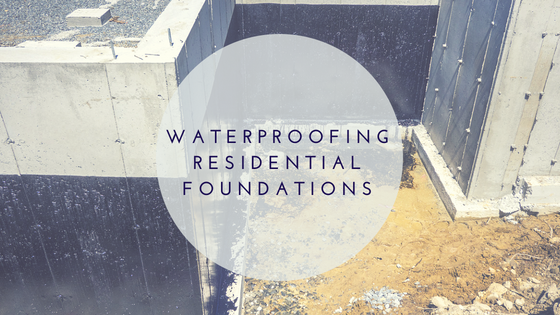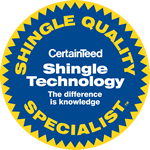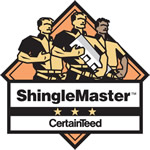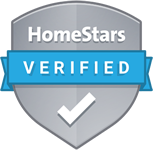Waterproofing Residential Foundations

If you are a homeowner for more about 30 years now, you probably remember that most residential foundations tended to be “waterproofed” with a solvent-based asphaltic product. At the time, it could be either applied by hand or sprayed. Other times, there were some other installers that tended to use glass fibers to ensure that not only the material could stay together as well as that it could prevent it from cracking over time.
Nevertheless, one of the things that you probably don’t know is that these weren’t actually waterproofing materials. The reality is that they were simply dampproof products. In addition, some people still use them today when they want to waterproof residential solutions.
One of the biggest problems in this area seems to be the confusion between dampproofing and waterproofing. While some people can use both terms with the same meaning, the reality is that they are different.
Most of the dampproof products that were used 20 or 30 years ago on the walls were solely used to prevent the transmission of water vapor into the concrete. However, waterproofing materials don’t only prevent the transmission of water vapor into the concrete as well as they prevent the transmission of liquid water as well. And this is why it is so important that you waterproof residential foundations with the right waterproof products.
When you do a quick search on the market for waterproofing materials, you will discover that there isn’t a wide variety of this kind of products. Some of the basic materials include:
#1: Rubberized Asphalt:
This tends to be the material that is more commonly used today. It comes in a spray form or in the form of adhesives. Since they are both sensitive to ultraviolet light, you need to ensure that they’re well covered when they are exposed to the sunlight.
#2: Solvent-Based Asphaltic Emulsion:
This material can either be applied with hand trowels or it can be sprayed. Usually, it needs to be heated so that you can spray the liquid. Some workers also like to mix it with glass fibers in order to prevent shrinkage and cracks.
While this kind of products has already been considered as the number 1 choice, most people don’t use it anymore.
#3: Rubber:
Made of a mix between a solvent and a synthetic polymer, this product needs to be sprayed. Rubber is also sensitive to UV radiation and you need to know that it can be installed after 3 days of the foundation wall has been cast.
One of the main advantages of using this product is that it can be applied at temperatures as low as 17º F.
#4: Bentonite Clay:
This is a mined material that when gets wet, becomes a thick gel and expands. This will prevent the water movement. One of the main disadvantages is that it doesn’t work well for water vapor.
#5: Polyethylene:
This material is used in the sheet membrane systems manufacturing. They are usually 3-layer sheets where he 2 outside layers are made of high-density virgin polyethylene.
Since this material is also sensitive to the UV radiation, you will need to add some components to ensure that they are protected during construction.
#6: Protection Components:
There are mainly 3 different situations that require you to cover waterproofing membranes. These include insulating basements to conserve energy, protecting membranes from damage from backfill, and providing water drainage to keep it away from the membrane.
When you live in the northern freeze, you need to know that most local codes are now requiring that foundations need to be insulated either on the outside or on the inside of foundation walls. Many companies, especially for economic reasons, are placing the insulation between the membrane and the backfill.
Related posts:

In Awe Roofing Limited is an Award-Winning, family owned and operated Vancouver Roofing Contractor with over 17 years of roofing experience. We serve the entire Lower Mainland area, from Whistler to Chilliwack, employing a team of professional staff members. Our team has won numerous awards including Best of Homestars for the last five years, and Three Best Rated six years in a row. Learn more






















